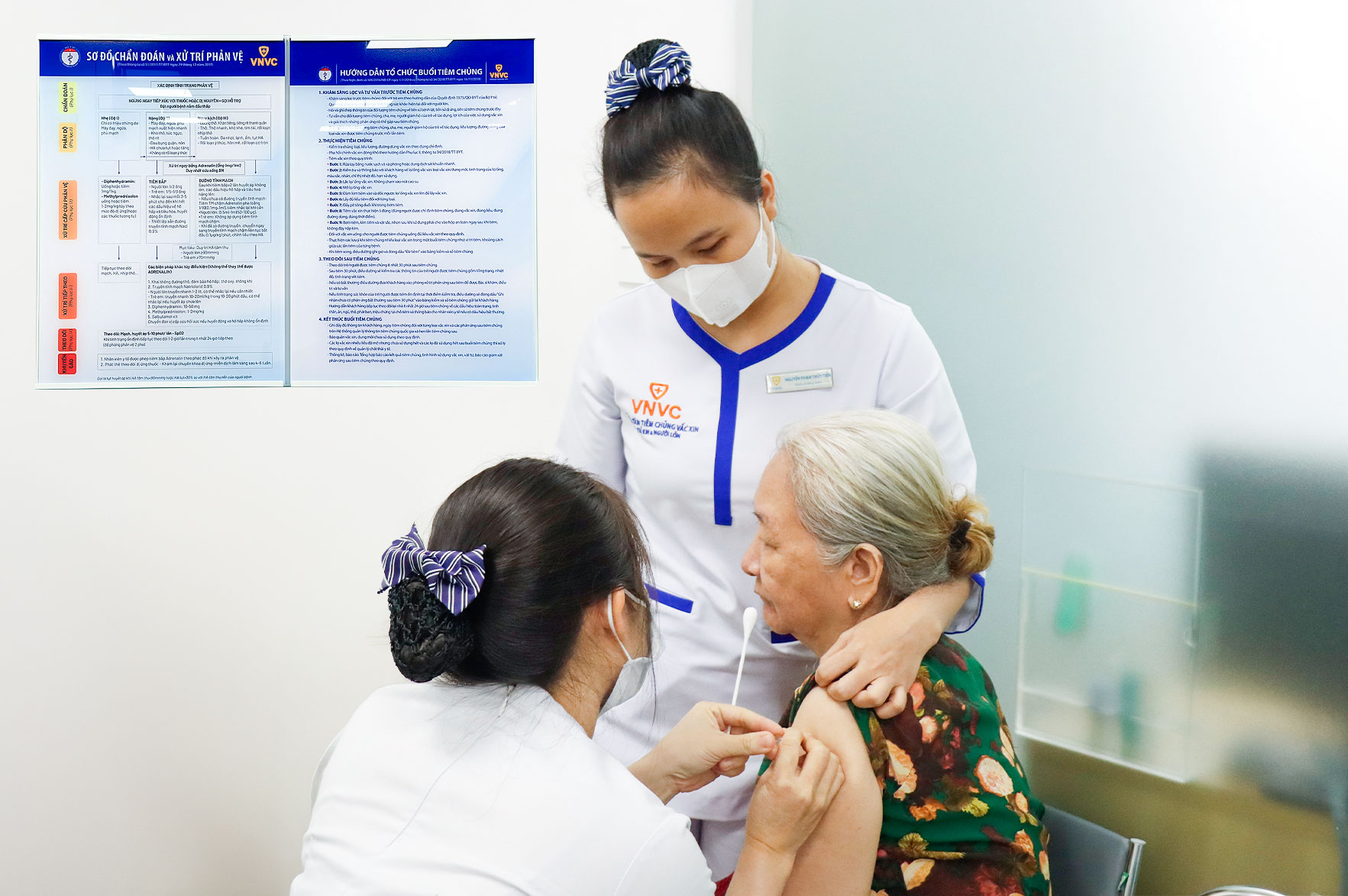Doctor Ngo Tran Quang Minh, medical director and head of the general internal medicine department at Tam Anh General Hospital in District 8, stated that not everyone with dengue fever experiences a fever. Many cases present with only a mild or transient fever, or no fever at all, particularly in older adults, those with underlying health conditions, or those who have already taken fever-reducing medication.
Dengue fever is an acute infectious disease caused by the dengue virus and transmitted by the Aedes aegypti mosquito. The disease typically progresses through three phases: febrile, critical, and recovery. The critical phase usually occurs between the 3rd and 7th day of illness. During this time, the patient's body temperature begins to decrease, but the virus continues to cause internal damage, particularly to blood vessels, potentially leading to plasma leakage and blood clotting disorders.
 |
Doctor Quang Minh examining a patient's lungs. Photo illustration: Tam Anh General Hospital. |
Simultaneously, the virus rapidly reduces platelet counts, causing blood clotting disorders and increasing the risk of internal bleeding, such as nosebleeds, bleeding gums, and potentially gastrointestinal or internal organ bleeding. Without prompt treatment, the disease can progress to severe stages, including shock, fluid accumulation, liver and kidney damage, and even death.
Doctor Minh advises seeking immediate medical attention and blood tests if experiencing fatigue, headaches, body aches, nausea, rash, nosebleeds, or unusual bruising. Blood tests can detect dengue even before a fever develops. Indicators such as complete blood count, platelet count, hematocrit, and the NS1 antigen test (which detects the dengue virus antigen) usually provide early results within 1-3 days, enabling doctors to diagnose the disease and assess its severity.
People should not self-treat dengue fever at home or use anti-inflammatory drugs like ibuprofen or aspirin. These medications can cause blood clotting disorders and increase the risk of bleeding if used incorrectly.
Individuals with dengue should promptly visit a hospital for medical examination. Depending on the condition, doctors may prescribe medication for home treatment and schedule follow-up appointments. If warning signs appear, such as lethargy, restlessness, severe abdominal pain, persistent vomiting, decreased urination, cold skin, or unusual bleeding, immediate hospitalization is crucial for intravenous fluids and timely medical intervention.
 |
An elderly person receives a dengue vaccine at the VNVC Vaccination System. Photo: Moc Thao. |
Doctor Le Thi Truc Phuong, a medical specialist at the VNVC Vaccination System, stated that there is no specific treatment for dengue, and early detection and close monitoring are crucial for preventing severe complications. People should proactively prevent the disease by eliminating mosquitoes and larvae, avoiding stagnant water around their homes, and using mosquito nets, even during the day.
Vietnam currently has a dengue vaccine that protects against all 4 serotypes (Den-1, Den-2, Den-3, and Den-4) and is administered to individuals 4 years and older. The vaccination schedule consists of 2 doses, 3 months apart. Women should be vaccinated 3 months, ideally one month, before pregnancy. Full vaccination reduces the risk of contracting the disease by over 80% and the risk of hospitalization by over 90%.
Kien Tuong












